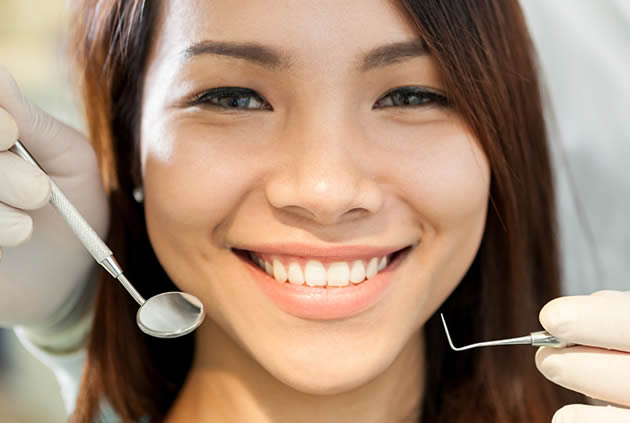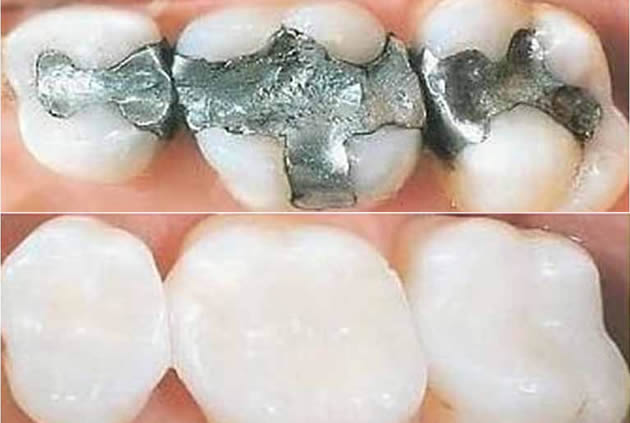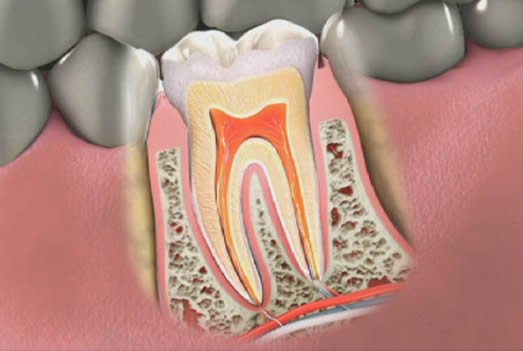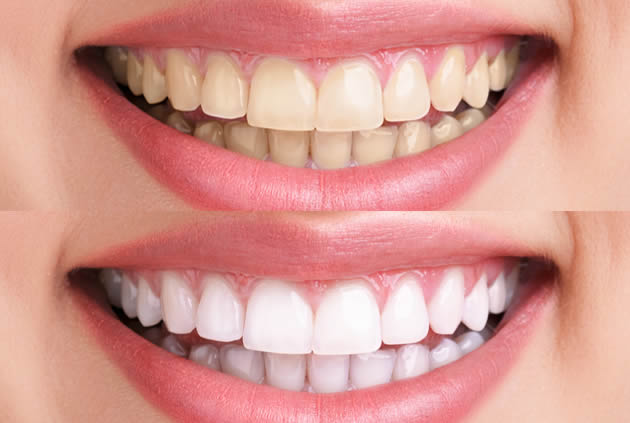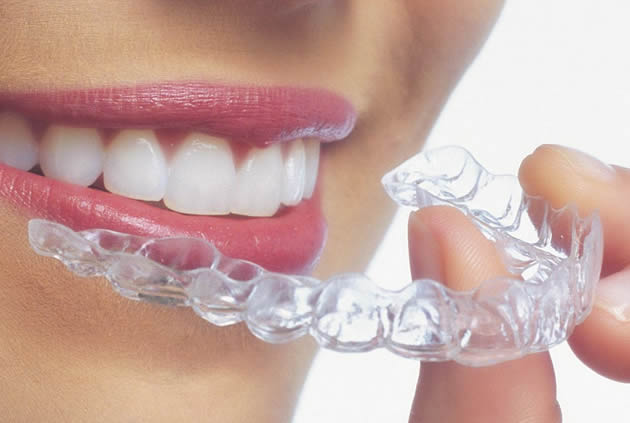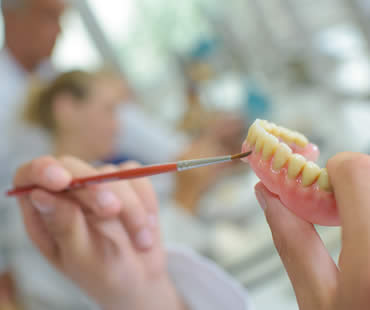
Thanks to advances in dental technology, dentures are more natural looking and comfortable than ever before. If you are one of the many adults wearing dentures to replace missing teeth, there are several do’s and don’ts you will want to follow to ensure they maintain their fit and your oral health:
- Do take your dentures out before going to bed, allowing your mouth tissues to rest from wearing them all day.
- Don’t let your dentures dry out. Soak them in mild denture solution or water while you sleep.
- Do clean them daily with either a mild detergent or special denture cleaning solution and a soft-bristled brush.
- Don’t soak them in very hot water, as this could cause them to warp, and they will no longer fit properly.
- Do handle them with care. Dropping your dentures or treating them with strong cleansers or harsh brushes can do permanent damage.
- Don’t neglect your oral care for the rest of your mouth. Even patients with a full set of dentures need to take care of their gums, and if you have partial dentures you should continue to brush and floss your remaining teeth regularly.
- Do pay attention to changes in the fit or feel of your dentures. Problems with fit can lead to irritation and discomfort, and could also be an indication of gum disease.
- Don’t try to adjust or repair your dentures on your own. If your dentures are ill-fitting or damaged in any way, schedule an appointment with your dentist to have them evaluated.
- Do continue to see your dentist for regular checkups to help maintain your best oral health and check your dentures for fit and function.
If you are missing all or some of your teeth, dentures can greatly improve both your appearance and the quality of your life. By following these simple guidelines, you can maintain the beauty and functionality of your dentures for many years.
If you need a dentist in Baltimore contact us today

Dental implants can last a lifetime with proper care. Like natural teeth, dental implants require vigilant oral care to maintain their usefulness and prevent problems. Once the implant has fused to the jaw bone, it is important to follow some general guidelines to ensure the continued success of your dental implant and restoration.
A condition known as peri-implantitis is a common cause of implant failure. This occurs when an accumulation of plaque leads to damage of the tissues and infection of the bone around the implant. While the implant itself is not susceptible to decay, if plaque is not removed with thorough brushing and flossing at least twice per day the resulting periodontal disease can lead to implant failure.
Your dental professional may also recommend the use of additional oral hygiene products such as special brushes or oral irrigation devices to aid in the removal of food debris and plaque around the areas of the implant supported restorations. Your dentist or hygienist can assist in teaching you to utilize these devices to improve your implant care.
Regular dental visits and examinations are vital to detect and prevent any issues that may present problems for your dental implants. Expect to visit your dentist every 3 months for the first year after implant placement, and then every six months for the life of your implants. Your dentist will also provide special care instructions if your implants are being used to support a removable denture. It is important to know how to place and remove the appliance without causing damage to either the denture or your implant.
Avoid applying excessive pressure or eating hard foods that could cause damage to the restoration and implant area. If you suffer from conditions like teeth grinding or clenching, discuss with your dentist the option of being fitted for a night guard to prevent the problems these habits can cause your implants. Taking excellent care of your oral health will help to ensure years of dental implant success.
We look forward to seeing you in our Baltimore dental office

One of the most recent innovations in modern orthodontics is Invisalign. These unique clear aligners are becoming increasingly popular for improving smiles without the stigma associated with traditional braces. Invisalign aligners straighten teeth by placing gentle pressure on them to move into better positions. This solution offers distinct advantages to some of the other options in orthodontics.
Hidden appearance:
One of the most obvious benefits of Invisalign is that the clear plastic is practically invisible in your mouth. The subtle appearance of the retainers is much less obtrusive than traditional metal braces. For patients who want to diminish the fact that they are undergoing orthodontic treatment, Invisalign in the perfect solution. Personal and professional relationships are not at risk of embarrassment due to being self-conscious about your smile.
Easy removal:
You will remove aligners from your mouth when eating or performing oral hygiene tasks. There are no impacts to your diet during Invisalign treatment, since you take out the aligners anytime you eat. Brushing and flossing are performed normally without having to worry about cleaning food debris out of intrusive wires and brackets. This can have positive impacts on your oral health as well.
Increased comfort:
The lack of metal pieces in the aligners means a more comfortable experience. Traditional braces have a reputation for poking the mouth or breaking. Invisalign offers a clear advantage of being very comfortable when worn.
Boosted confidence:
No matter if you are a teenager or an adult wearing braces, it can be embarrassing to have a mouth full of metal in your smile. The invisible quality of Invisalign eliminates those self-conscious feelings, giving you the confidence to smile, laugh and eat as usual even while undergoing treatment.
If these benefits of Invisalign sound appealing to you, schedule an appointment with a qualified orthodontist who provides this type of treatment. It may be the winning route to your beautiful smile.
We treat patients from Baltimore and the surrounding area
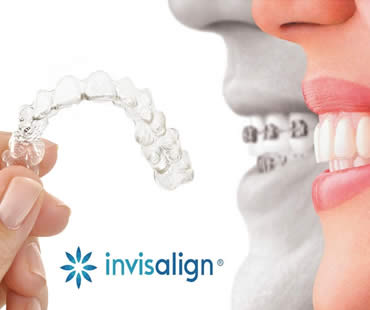
Straighter teeth are possible through traditional metal braces or Invisalign clear aligners, but how do you know which are right for you? These two types of orthodontics work differently to improve smiles. Invisalign uses invisible removable plastic aligners to gradually shift teeth, while metal braces require brackets bonded to the teeth and arch wires to apply pressure to move the teeth.
If you are deciding between these two types of treatment, ask yourself some questions to help you choose:
- How severe is your case? Moderate conditions like overcrowding, gaps, and overbite or underbite issues can be treated with either option. However, more severe cases like malocclusions, jaw problems, crossbites, or seriously crooked teeth may require metal braces for more effective results.
- Do you care if others see your braces? Metal braces are very noticeable and bulky, while Invisalign is virtually invisible in your smile. Adults and self-conscious teens may prefer the concept of hidden orthodontic treatment.
- Will you be diligent in wearing aligners? They should be worn at least 22 hours each day for best results, so neglecting to wear them consistently can negatively impact your smile or require longer treatment time.
- Are you concerned about keeping your teeth clean? Metal braces can be difficult to clean because food becomes caught in the wires and brushing may not easily reach all areas. Since Invisalign trays are removable, brushing and flossing are performed normally throughout the process.
- Are you worried about teeth stains? Since it’s easier to keep teeth clean with Invisalign, you avoid the risks of stains from food and plaque buildup around metal braces that may stain your teeth.
- How often do you want to visit the orthodontist? Metal braces require office visits at least every 4 weeks for tightenings. Invisalign trays are changed every 2 weeks, but many orthodontists provide a series of trays to take home so that an office visit isn’t required each time. It’s possible that you may not visit the orthodontist as often with Invisalign.
The ideal choice for your orthodontic treatment can be decided by consulting with your orthodontist. Find out which option will best transform your smile.
If you live in the Baltimore area contact us today
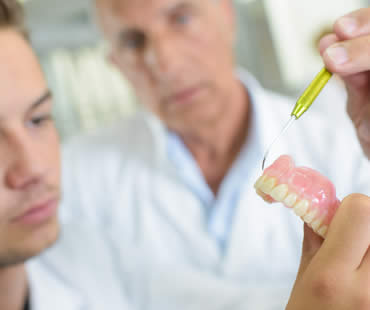
An implant overdenture combines the use of traditional dentures and implant technology to create a denture that fits over your remaining natural tooth roots or dental implants. These root or implant supported dentures are held in place by dental attachments which provide excellent stability and support for your dentures. Overdentures were developed to help patients missing some or all of their teeth regain a quality of life that may have been lacking since they lost their teeth.
There are several benefits to implant overdentures when compared to traditional dentures:
- Saving your natural roots or having implants placed slows bone loss by stimulating the bone in your jaw when you eat or chew.
- Because overdentures are better fitting by design, they are more stable and allow you to chew food more thoroughly. This promotes better digestion and allows you to absorb more nutrients.
- The increased stability provided by overdentures also means you are able to speak more clearly, as there is no slipping or clicking of your dentures.
- Loose dentures are not a worry with overdentures. Sticky adhesives and messy denture creams are unnecessary when you have implant overdentures.
- With overdentures, the natural shrinkage that occurs from an under-stimulated jaw does not occur. This keeps your face from looking sunken, as can often happen with traditional dentures.
To find out if you are a candidate for implant overdentures, schedule an evaluation by your dental professional. Overdentures could be the best, most natural treatment for restoring your oral health and beautiful smile.
We look forward to seeing you in our Baltimore dental office
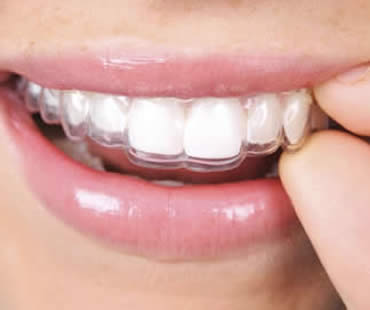
The innovative approach to improving smiles through Invisalign has paved the way for beautiful smiles for people of all ages. Not just for children and teenagers, Invisalign appeals to adults all the way through to retirement ages. It’s never too late to transform your smile and regain your self-esteem when you have the option of Invisalign.
What types of problems does Invisalign address? In addition to simply straightening the teeth to achieve a more perfect smile, dental problems like gaps, overcrowding, overbites, underbites, open bites and cross bites can all be improved.
The process involves wearing customized invisible plastic aligners over your teeth. New aligner trays are provided every few weeks during treatment as your teeth gently move to their improved positions. The aligners are removable for easy dental hygiene, since normal brushing and flossing are possible instead of dealing with cumbersome wires and brackets. The clear plastic trays are nearly invisible in your smile, hugging your teeth securely allowing for no embarrassing slips or speech impacts.
Invisalign is possible for just about anyone with permanent teeth and healthy gums. Older patients are often at higher risk for gum issues, so correcting crooked teeth or overlaps is especially beneficial to help those patients avoid gum problems related to gaps or inability to clean teeth properly. Correcting misalignments can also prevent jaw or joint pain in the mouth, head, and neck area.
Patients over the age of 50 are seeking orthodontic treatment more than ever. As they age, many people want to avoid dentures when possible and Invisalign can provide a great option for making smiles look more appealing while also improving oral health. A beautiful smile can also improve your outlook on life, making you look and feel younger. An attractive smile positively impacts your overall attitude and appearance, and it’s possible with the help of Invisalign.
We treat patients from Baltimore and the surrounding area












